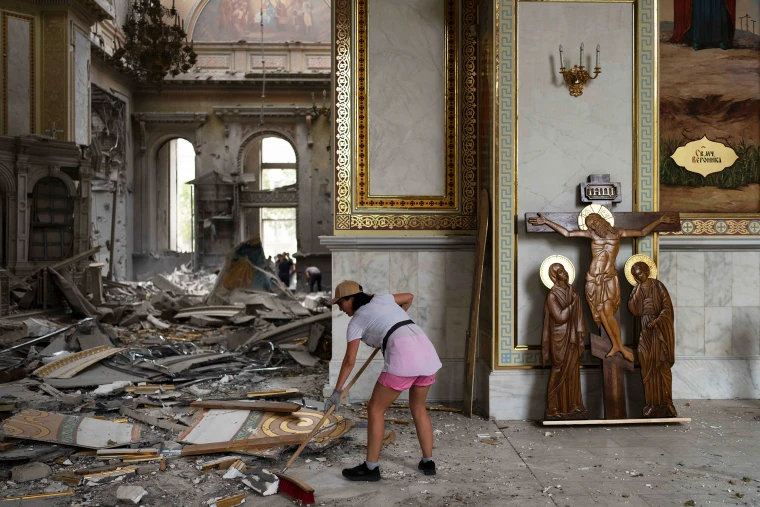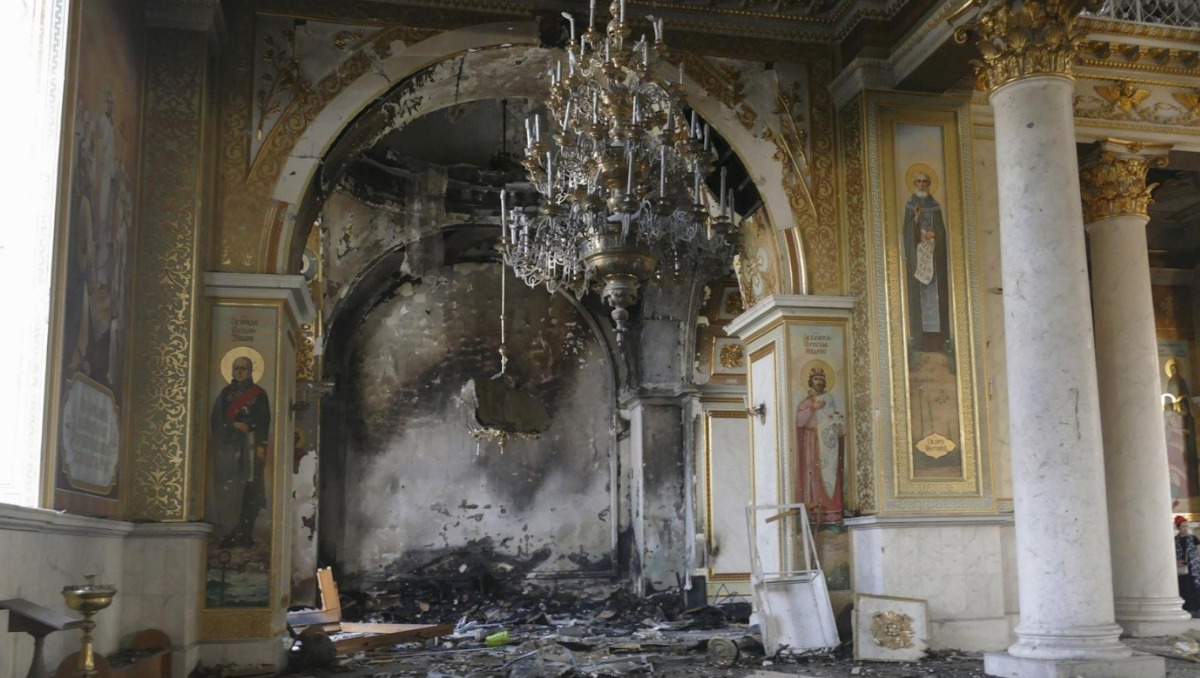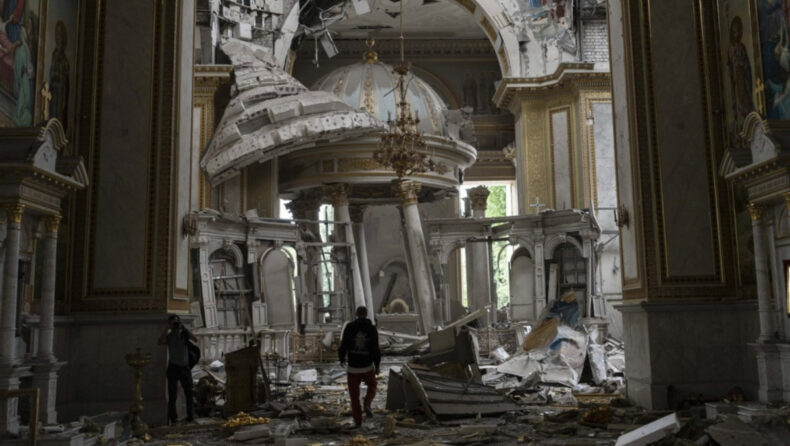The war between Russia and Ukraine is escalating into a destructive pandemonium as the casualties increase and the destruction of historical landmarks increases. The recent attack on Odesa, a Ukrainian port city, by a Russian missile has damaged the Transfiguration Cathedral, an orthodox church more than 200 years old.
It has been reported by the officials that the strikes have resulted in the death of one person and injured 22 others, including four children. “At least 44 buildings were damaged, 25 of which are architectural monuments,” Oleh Kiper, governor of Odesa, said on the Telegram Messaging app. “This is another attempt to kill peaceful Ukrainians and erase our history and heritage of world importance. Occupants, covering up with “Orthodoxy”, destroyed the world-famous Spas-Reflection Cathedral. As the Soviets once did, so the RF today once again destroys this building.”
World Heritage Site in Danger

On January 25, 2024, the city centre of Odesa was listed as a World Heritage Site by UNESCO and came under their protection. Despite this elevation of status, the city centre faced detrimental damage in the recent onslaught by Russia. The Transfiguration Cathedral is counted as Odesa’s largest church building and was built between 1794 and 1808. It was consecrated in 1809, but during the Soviet era in 1936, its original structure was destroyed, after which it was reconstructed.
According to the Ministry of Defence, the Russians attacked the Odesa region with 19 missiles of various types: 5 Onik cruise missiles; 3 Kh-22; 4 Kalibr; 5 Iskander-K; and 2 Iskander-M ballistic missiles. In which Air defence forces shot down nine missiles, including four Kalibr and five Iskander-K missiles.
The destruction of UNESCO world heritage sites brought out the question of insouciant disregard during the war towards important cultural and historical places. It becomes pivotal to understand that we should not bring the extreme consequences of war onto cultural locations, as they are marked with an invaluable historical significance that, once lost, can never be restored.
Reaction from Russia

Russia’s Ministry of Defence has slammed the report as unsubstantiated and said that the attacks were carried out on the areas where “terrorist acts” were being prepared, which was at a safe distance from the church complex.
“The planning of strikes with precision weapons on the military and terrorist infrastructure of the Kiev regime is carried out on the basis of information carefully verified and confirmed through several channels, obviously excluding the defeat of civilian facilities where the civilian population is located, as well as objects of cultural and historical heritage, the Ministry of Defence added.
The Defence Ministry asserted that, according to the footage of Transfiguration Church that’s being published by local residents, the most probable cause of its destruction was the fall of a Ukrainian anti-aircraft guided missile. It Was claimed by the defence ministry that this happened due to the illiterate actions of the operators of air-defence systems, which the Armed Forces of Ukraine deliberately placed in residential areas of settlements, including in the city of Odessa.
Russia has been pounding the sea infrastructure and Ukrainian food export facilities since last week, and after the fallout of the Black Sea Grain Deal, which allows Ukrainian grain to be shipped around the world from Odesa, this has become exacerbated. Oleksiy Danilov, Secretary of the National Security and Defence Council of Ukraine, tweeted that “the main goal of the Russian missile attacks on Odesa and the region is an attempt to completely isolate Ukraine’s access to the Black Sea and, through an act of intimidation, to prevent and neutralise international efforts to restore the functioning of the “grain corridor”.
Ukrainian President Volodymyr Zelensky denounced the attack by stating that “Missiles against peaceful cities, against residential buildings, a cathedral… There can be no excuse for Russian evil. As always, this evil will lose. And there will definitely be a retaliation to Russian terrorists for Odesa. They will feel this retaliation.”
There is an international outcry over this attack, as Josep Borrell Fontelles, Vice President of the European Commission, tweeted, “Russia has already damaged hundreds of cultural sites, trying to destroy Ukraine.” Whereas, Italy, which has shown solidarity in this event by tweeting, “Italy, which supported Odessa to become part of the UNESCO World Heritage List, will be at the forefront of the city’s reconstruction.”













